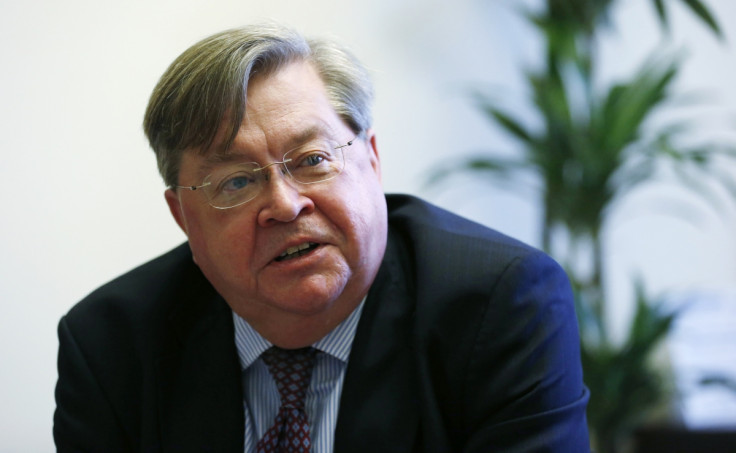UK Interest Rates Rise: Bank of England Policymakers Divided for First Time in Three Years

Minutes from the August meeting of Bank of England policymakers have brought further confusion as to when interest rates will rise as it emerged that rate-setters were split on their decision for the first time in three years.
Falling inflation that is below the central bank's 2% target, a record-low rate of wage growth and a productivity level that is still yet to reach its pre-crisis peak have deterred the nine members of the Bank of England's Monetary Policy Committee (MPC) from increasing the base rate.
But in August, two members – Martin Weale and Ian McCafferty – backed raising the base rate immediately to 0.75% to anticipate the strengthening of the economic recovery, which is expected to see 3.5% GDP growth in 2014.
Both argued wages and productivity will pick up soon as unemployment drops rapidly and labour market slack is used up, and that this paradox of rising employment and weakening pay was merely the result of the latter lagging the former.
"If that were true, wages might not start to rise until spare capacity in the labour market were fully used up," said the MPC minutes.
"Since monetary policy, too, could be expected to operate only with a lag, it was desirable to anticipate labour market pressures by raising bank rate in advance of them."
They added that the central bank's base rate would still be "extremely supportive" and would only be a gradual rise, in line with what policymakers have been saying for months.
"We would make the point that it does not automatically follow that momentum will build quickly for a tightening simply because two MPC members have voted for a hike," said a note from Investec Economics.
"Indeed in May 2011, three individuals supported higher rates, but all had backed down three months later as the outlook for the economy had deteriorated.
"Clearly the path of interest rates will, to use a well-worn phrase, depend on the data. The problem though is that mixed comments from the MPC in recent weeks leave us unclear as to which pieces of data this will be."
The other seven MPC members voted to hold it at the all-time-low of 0.5%, where it has been since 2009 to keep the cost of credit down and banks lending to businesses and consumers while the economy was weak.
They were concerned about raising rates too early, in turn putting pressure on household finances, weakening the consumption-led economic recovery and increasing the value of sterling, which would damage efforts to rebalance towards exports and manufacturing.
"The results of today's minutes will refuel speculation of a rate rise before the end of the year, something that appeared to have lost considerable momentum with yesterday's lower inflation figures, and will add to the uncertainty," Sam Alderson, economist at the Centre for Economics and Business Research (CEBR).
"CEBR still expects the first rate rise to come in early 2015, although it is unlikely that inflationary pressure is going to force this decision upon the bank.
"Downward pressure from global developments and retailer competition leave petrol and diesel prices poised to fall, which alongside low food prices should keep inflation figures subdued.
"However, rates should still be increased gradually in line with the general as the economy continues to recover. Gradual increases in the bank rate will bring interest rates back to a new normal level, which will be lower than that seen before the crisis at about 2% and would be unlikely to derail the recovery."
© Copyright IBTimes 2025. All rights reserved.






















